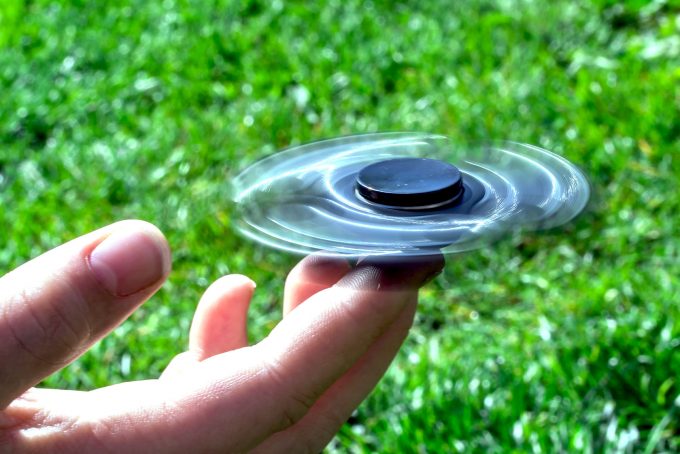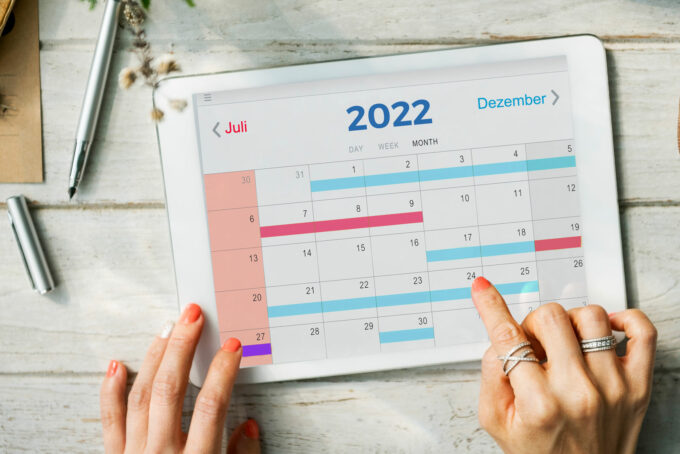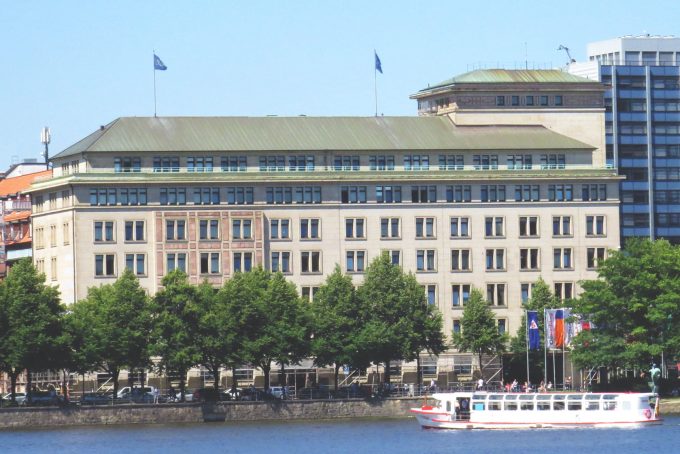
Barcamp@GeNeMe’2020: Open Science in Times of Crisis
Like many other events, the first "satellite event" of the Barcamp Open Science had to be moved to digital space due to the global pandemic. Appropriately, the topic "From the crisis of science to science for times of crisis?" was addressed. Contributors showed different examples of where Open Science can help in overcoming global challenges. And the digital space offered the possibility of global participation. In the following, organising team and contributors give some insight into the barcamp.
by Sabine Barthold, Loek Brinkmann, Ambreen Hamadani, Shweata Hegde, Franziska Günther, Peter Murray-Rust, Guido Scherp and Simon Worthington
On 7 October 2020, the TU Dresden Media Centre and the Leibniz Research Alliance Open Science invited Open Science scholars and activists to the first “Barcamp Open Science@GeNeMe 2020” (Barcamp@GeNeMe’2020). It served as pre-event of the conference “Communities in New Media – GeNeMe 2020” and was also the first satellite event of the established Barcamp Open Science.
Like so many other events this year, we took up the challenge of organising the Barcamp in a purely online format. At the same time, however, this challenge was an opportunity to further open up the Barcamp for international participation and to invite Open Science enthusiasts from all over the world to join us and exchange ideas, discuss new developments and share their experiences in the proliferation of open, collaborative and digital science. In the end, among 40 Open Science enthusiasts we had contributors from countries like the United Kingdom, Russia, India, Iran, Germany, Chile and the Netherlands.
From the crisis of science to science for times of crisis?
The barcamp topic ‘From the crisis of science to science for times of crisis?’ was inspired by the global fight against the spread of the novel coronavirus that dominates the social, economic and cultural life of most countries in the world since spring 2020. The current crisis experiences also brought other societal threats such as climate change or global environmental destruction back into the public consciousness. The enormous importance of scientific knowledge for the handling of the ongoing crisis highlighted the value of the core ideals of Open Science – transparency, collaboration, rapid and open publication of research and data, and importance of effective science communication to translate research into social and political action. The question we wanted to discuss was: what role can Open Science play in addressing this crisis in particular, but also other global crises, like climate change, in general? We asked some of the session moderators to summarise their highlights and personal impressions of the event.
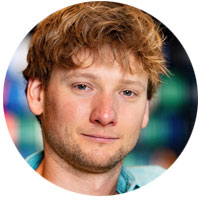
Start your own Open Science Community
by Loek Brinkmann
Grassroots Open Science Communities (OSCs) and initiatives play a crucial role in the transition to Open Science. OSCs are breeding grounds for Open Science initiatives and showcase cutting-edge Open Science practices amongst colleagues, to instigate a culture change amongst researchers. Most Dutch universities have an OSC in place and its format is now also catching on abroad. Collectively, the communities have published an Open Science Community Starter Kit, which we presented in our session.
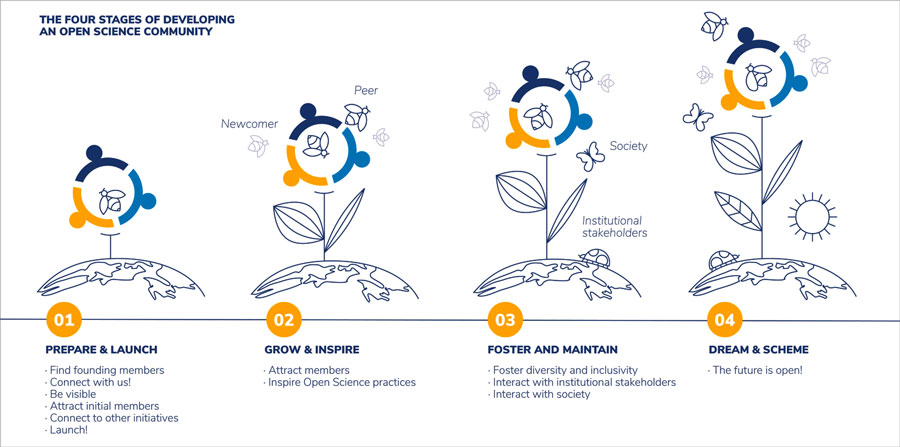
INOSC Starter Kit: The four stages of developing an Open Science Community, this work is licensed under [CC BY NC SA 4.0].
We invite researchers around the globe (that’s you!) to start their own OSC and connect it to the International Network of Open Science Communities (INOSC).
These communities are places where newcomers can learn from their colleagues and ease into Open Science. Moreover, OSCs provide tools and training to interact with societal stakeholders, so that researchers can increase the societal impact of their work. For example, by including stakeholders from government, industry or civil societies early on in the research cycle, to optimise research questions and output formats for relevant and meaningful implementations in society.
During the barcamp, we had a fruitful discussion on how to articulate the benefits of Open Science for societal impact and how Open Science Communities can inspire researchers to engage more with societal stakeholders. Very nice experience! Thank you for all your input!
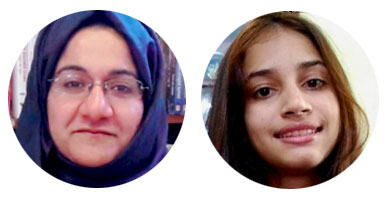
openVirus, Citizen Science and curiosity
by Ambreen Hamadani and Shweata Hegde
The COVID-19 crisis was thought-provoking. It taught us that our common enemy can only be defeated if all of us come together and share our intellectual resources. openVirus epitomises this idea and has embarked on a mission to create a system for mining open literature to draw useful inferences so that viral epidemics can be prevented and controlled. It aims to build a better world through citizen collaboration. openVirus encourages the exchange of ideas and welcomes volunteers even from the remotest and most cut off regions of the world. This is crucial for building an incorrigibly curious community determined to fuel science with new and revolutionary ideas.
The Barcamp@GeNeMe’2020 provided the openVirus team with a perfect platform to achieve these goals. The event was indeed an intellectual treat and we are immensely grateful for the opportunity to host a session on openVirus and Citizen Science. It gave us a chance to demonstrate the immense potential of open toolkits, Open Knowledge and citizens’ contributions to science. It was also a wonderful opportunity to learn, to share ideas, and to have more volunteers join our diverse group. We not only got to meet new people with similar interests but also got a chance to know more about great Open Science initiatives and projects. Physical presence is often impossible for such global events and the Barcamp@GeNeMe’2020 was a great solution to that!
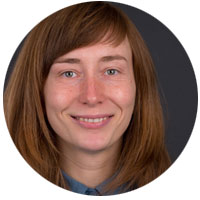
Experiences with training materials on Open Science
by Franziska Günther
The contributors discussed training on Open Science focusing on different topics: Massive Open Online Courses (MOOCs) and their platforms, training, and practices on Open Science in different subject areas. In the latter case, one contributor pointed out that practices and training on Open Science highly depend on the subject area. Other ways of learning about Open Science, such as informal learning or through commitments in projects, were also of interest in the session. As the discussion moved on, contributors focused on how sustainable and continuous Open Science training can be provided. They agreed that Open Science should be part of the curricula for university graduates. The last issue in the session was whether Open Science is only related to the academic world and where non-academics can receive Open Science training to become part of this practice.
I enjoyed being part of the Barcamp@GeNeMe’2020. The discussions were interesting and fruitful. For me, this was mostly due to the fact of the diverse background of the participants. People from all over the world could participate and at the end also did. I got new perspectives on Open Science topics and therefore I am grateful.
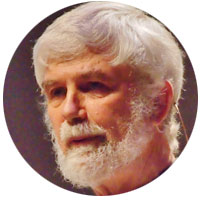
Global issues of Open Science: equality, resources, goals
by Peter Murray-Rust
I was very grateful to be able to take part in Barcamp@GeNeMe’2020 as it’s a completely new way of people getting together. Both technically and socially it worked very well. It was great to have contributors from all over the world, especially India.
We face massive global challenges such as infectious diseases (viral pandemics, antibiotic resistance), food security, and climate change. To tackle this we need a global response, with a large multicultural contribution from Open Science, based on community action and inclusion, equity and diversity. All citizens (not just rich universities and companies) are needed to contribute to solutions, and a major way is through scientific research and practice. Science is based on equity (anyone can be a scientist) but this is often warped by a dominant Anglophone capitalist North. In the digital age Open Knowledge is an essential tool and we must work to create a shared resource – creation, dissemination, re-use – that everyone can take part in.
I hope that the Barcamp@GeNeMe’20 leads to a different way of scientific conferencing. We didn’t have to spend two days travelling, and spending lots of money. There are downsides – the informal meetings/coffee, the chance encounters – but for me (retired) and openVirus (students, India) there is no way that we could have done this last year!
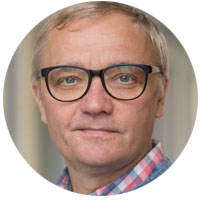
Open Science and Climate Change
by Simon Worthington
The session was revealing how the work of individual researchers, working groups, and communities asking Open Science questions can make a difference. It makes you realise we can all redirect some of our time to climate issues.
Inspiring is the researcher Joachim Allgaier who asks in the GenR interview “YouTube – Fix Your AI for Climate Change! An Invitation to an Open Dialogue”. When you search for Climate Change on YouTube it will return 50% as anti-climate change content, which can be attributed to YouTube financially rewarding and so recruiting these content producers. What needs to happen with social media networks like YouTube is a good dose of Open Science transparency and regulation of their content algorithms.
The project Open Climate Knowledge FORCE11 Working Group advocates for 100% open research for climate change. In research literature we see less than 30% of the papers being Open Access. Greta Thunberg says, she “wants you to listen to the scientists” – but how can the public do this when it’s paywalled?
As a research community the Open Energy Modelling Initiative (openmod), mainly coming out of Germany, works on new energy systems for a low carbon future. It has enthusiastically embraced Open Science practice. As yet, no future low carbon economic plans are reliable and have not been reliably tested with energy models using Open Science practices – essentially we are currently trapped – “planlos” (without a plan).
Online barcamps: Can they work?
The most important thing: A barcamp works virtually. You have already seen this at other barcamps, but it is different to have this experience as an organiser. And the contributors have to adapt to this new environment, too. To lighten up the atmosphere, simple elements like a social break with relaxation exercises or a pub quiz can help. And as with face-to-face events, digital retreat areas (coffee kitchens) are also needed. The great advantage of a virtual event is obvious: people from all over the world, who could not be reached with a face-to-face event, take part. This was very nice to see on the Barcamp@GeNeMe’20, whereby time zone differences naturally make participation only possible to certain time slots. In addition, compared to previous face-to-face barcamps, we could observe a higher fluctuation. It is easy to disconnect and reconnect, and you are more selective as participation in online events is generally a bit tiring.
Virtual barcamps may not (yet) come close to the spirit of a local barcamp, because certain possibilities of social interaction and exchange are simply missing. But we will certainly see more online formats (possibly as a supplement to offline formats) in the future. However, a hybrid barcamp seems to be a bit unimaginable at the moment.
Barcamp recommendations for 2021
The upcoming Barcamp Open Science (16 February 2021) as pre-event of the Open Science Conference -will be completely virtual-. Here we would also like to point out the Barcamp in the context of the Open Science Festival (14 January 2021) which is organised by colleagues in the Netherlands.
This might also interest you:
- Barcamp Open Science: Learning to Make a Difference.
- Online Events: Mastering Hurdles on the Path to a Digital Future – the Example of the YES! 2020.
- Open Access Days 2020: Highlights & Tips
- InnOAccess-Workshops: Publishing Free-of-Charge Open Access Journals Sustainably.
- LIBER 2020 Online: Building Trust with Research Libraries.
- Libraries and online events, part 1: How to plan a successful event.
- Libraries and online events, part 2: How to conduct successful conferences and meetings.
- Libraries and online events, part 3: How online workshops encourage new ideas and collaboration.
About the Authors:
Sabine Barthold (Media Centre, TU Dresden), Loek Brinkmann (Assistant professor in Open Science, Utrecht University, and community coordinator/co-founder @ Open Science Community Utrecht), Franziska Günther (Media Centre, TU Dresden), Ambreen Hamadani (SKUAST-Kashmir), Shweata Hegde (Regional Institute Of Education, Manasagangothri, Mysuru), Peter Murray-Rust (University of Cambridge and @TheContentMine), Guido Scherp (Open Science Transfer, ZBW, and Coordinator Leibniz Research Alliance Open Science), Simon Worthington (Open Science Lab, TIB, and GenR Editor-in-chief).
References portrait photos:
Loek Brinkmann: Ivar Pel© | Ambreen Hamadani: Ambreen Hamadani© | Shweata Hegde: Shweata Hegde© | Franziska Günther: Kirsten Lassig© | Peter Murray-Rust: Slowking – Own work, GFDL 1.2 | Simon Worthington: TIB / Christian Bierwagen©.
View Comments
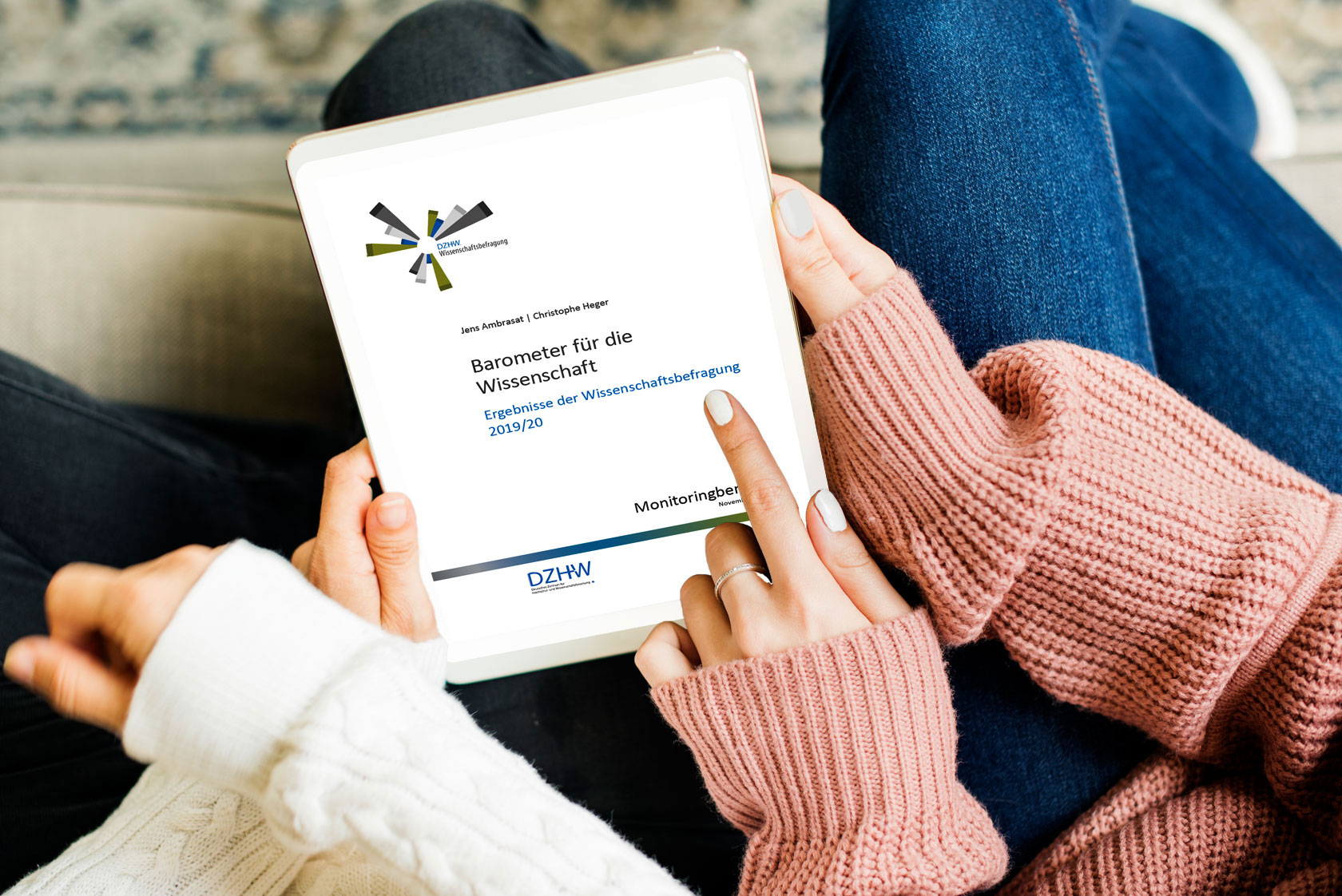
The 2019/20 Barometer for the Academic World: New Insights for Open Science?
What is the state of science in Germany these days? The Barometer for the Acadamic...

